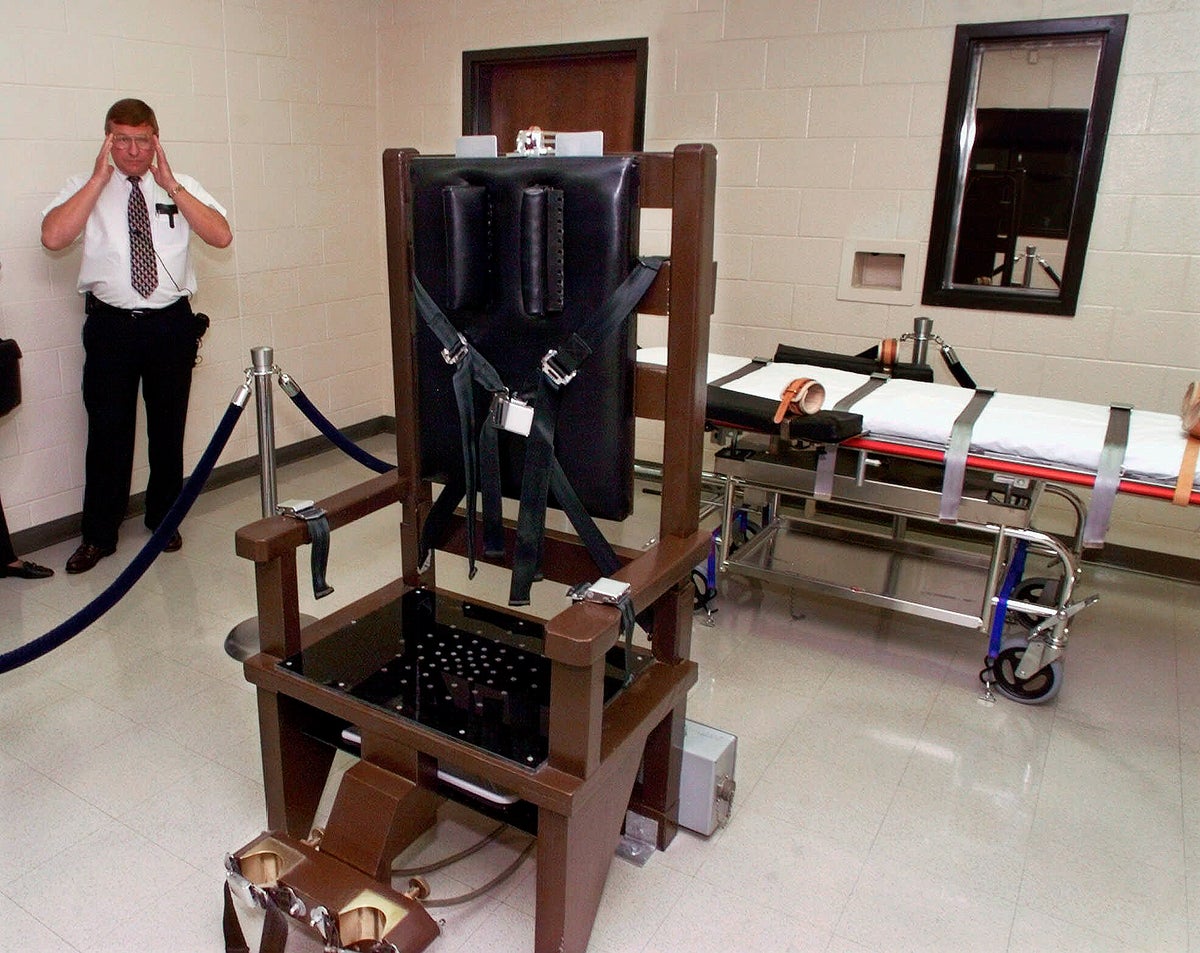
The Tennessee Department of Correction has fired its longtime top attorney and another employee following a scathing independent report on failures within the state's lethal injection system.
Debbie Inglis, deputy commissioner and general counsel, and Kelly Young, the inspector general, received notices of “expiration of your executive service appointment” on Dec. 27, according to documents obtained by The Associated Press through public records requests. Though officials gave no reasons for the firings, Gov. Bill Lee’s office has previously said without elaborating that two individuals were let go in connection with the report’s findings.
The firings came a day before the Republican governor publicly released the report, whose findings cited widespread failures to conduct required testing on the injection drugs under Tennessee's own rules, among other issues identified. Lee's team had been reviewing the findings since Dec. 14, when the former U.S. attorney he hired to investigate submitted the report.
Tennessee is currently assessing changes to its death penalty procedures while continuing a pause on executions pre-dating the COVID-19 pandemic. Nationwide, the 18 executions carried out in 2022 marked the fewest in any pre-pandemic year since 1991, with seven of last year's 20 execution attempts visibly problematic or taking an inordinate amount of time, according to the Death Penalty Information Center.
And in Oklahoma, where an inmate is executed roughly every 30 days, new Attorney General Gentner Drummond said the quick pace places too much burden on prison staff and should be slowed to every 60 days.
Robert Dunham, the Death Penalty Information Center's executive director, said it's “extremely rare” that violations of execution protocols lead to outright firings of corrections officials, though more frequently officials are allowed to retire.
The notices to Inglis and Young instructed them to turn in their IDs by day's end Dec. 27 and not report for 10 paid workdays, with Jan. 10 their last official day, according to the documents.
Young's name doesn't appear in the independent report. Some names were redacted due to state secrecy laws protecting parties in death penalty roles.
The review found Tennessee hasn't complied with its own lethal injection process since revisions in 2018, resulting in several executions being conducted without proper testing of the drugs on hand — and in two cases, used to kill the inmate. Five other inmates executed since 2018 died in the electric chair. Tennessee’s rules stipulate the drugs need to be tested no matter the execution method used.
The review found former Correction Commissioner Tony Parker — who retired in 2021 — largely relied on Inglis, the attorney general's office and the state's execution drugs procurer to create the new three-drug protocol finalized in 2018.
The report determined Inglis, Parker, the interim commissioner and the procurer were among the few employees best positioned to ensure the protocol was followed. Only once was a drug tested for endotoxins— one of three required tests — during a May 2018 apparent “test run” before the protocol's completion. It never happened for an execution, the report added.
“The fact of the matter is not one TDOC employee made it their duty to understand the current Protocol’s testing requirements and ensure compliance," the report said.
Lee paused all executions in May and requested the review. At the time, he confirmed the state failed to ensure its lethal injection drugs were properly tested before the scheduled April execution of Oscar Smith, which was halted shortly before it would have begun.
Lee vowed new corrections leaders will change the lethal injection protocol with input from the governor’s and attorney general’s offices.
He installed former Arizona state corrections official Frank Strada as the permanent commissioner. Arizona's recent executions have used pentobarbital, a drug Tennessee officials have said they can't obtain for executions. In the three executions carried out by Arizona this year, corrections also officers struggled to find suitable veins for IV lines to deliver the lethal injection.
Inglis began in Tennessee government in 1986 as an assistant state attorney general in the civil division. In 1992, she joined the criminal division and served as lead supervisor of the litigation team focused on death penalty cases. She joined the correction department in 1994 and led its legal division.
During Inglis' tenure, Tennessee carried out its first execution by lethal injection in 2000, and the drugs used have changed over time. Four more lethal injections and one electrocution followed from 2006 to 2009, before officials resumed executions with the new lethal injection protocol in 2018.
Since then, Tennessee has used a three-drug combination: the sedative midazolam to render the inmate unconscious; vecuronium bromide to paralyze the inmate; and potassium chloride to stop the heart.
The independent review found that the state put a single employee with no medical background in charge of procuring the drugs, and that there was no evidence the state ever provided the pharmacy in charge of testing the drugs with a copy of its protocol.







